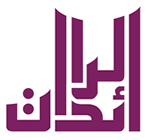SHARE
Over the last eight years, Iraqi women have become increasingly active in politics, taking on some of the country’s most vexing issues — peace and security, economic empowerment, social justice, education and the environment. Their goal is to achieve consensus across regional, political and sectarian lines in a nation where coexistence and compromise are not everyday occurrences.
One tool in this effort has been the National Platform for Women, a collaborative initiative by Iraqi political party members and civil society activists to spell out recommendations for government policy. Published in January 2010, the platform is a reference point for citizen forums and advocacy campaigns that Iraqi women are conducting in provinces across the country.
Another tool is the Young Women’s Leadership School, created by NDI this year for women ages 18-30. The school’s first 25 graduates were from a mix of nongovernmental organizations and political parties. Participants were selected from more than 100 applicants on the basis of their achievements and past civic engagement.
They met three times between January and May for intensive study and discussion on topics such as leadership, management, communications, social media and advocacy. During the sessions, young women also learned strategies for overcoming cultural stereotypes and personal barriers that could limit their success in the political arena.
Al-Raidat Alumnae Mentorship Network

NDI developed an online alumnae network for female participants of its programs in Iraq. Called “al-Raidat,” the feminine plural for “leaders” or “pioneers” in Arabic, the network’s name reflects the groundbreaking work that women are accomplishing across Iraq.
The hub of the network is the website, www.al-raidat.org, which connects past and present NDI partners to one another and to resources for social and political activism. Al-Raidat provides members with the opportunity to reach out to other female leaders in the region, ask for and receive strategic advice, share news events and personal successes, and learn about effective strategies for achieving their goals.
One recent example is Fenik Kamal, a young Iraqi woman who organized a program on human rights—a critical issue in her province of Sulaymaniyah. Committed to changing her community and her society, Kamal worried in the days leading up to the session whether the attendees would listen to her and whether they would be receptive to her presentation.
Kamal reached out to her mentor, an alumna of NDI’s Multi-Party Women’s Caucus program, who encouraged her to believe in herself and shared tips for effective training, including how to open the program and how to keep participants’ attention. Reassured by her mentor’s support and armed with time-tested techniques and suggestions, Kamal overcame her doubts and staged a successful event.
The school focused on concrete skills that the women could put into practice immediately to influence their career development and involvement in politics. They practiced negotiation techniques, such as framing arguments in ways that are persuasive to both adversaries and potential allies.
They also learned management styles and strategies for handling diverse groups of employees or political partners. “It is important to give others the opportunity to express themselves, their thoughts and their ideas in a participatory manner,” said a participant from Baghdad about lessons learned. “Respecting other people’s opinions and learning to be open-minded with my opinions is an important component of successful teamwork.”
To practice their message development and communications skills, participants conducted a series of mock press conferences on personal status law and unemployment — two issues that impact young women in Iraq.
One group argued for amendments to legal parameters for marriage. Another group argued that the current personal status law — which includes provisions for individual rights such as marriage, divorce and inheritance — does not contradict either Islamic law or Iraqi tradition. Rather, participants suggested that conditions be placed on marriage laws to ensure that women’s rights are protected. The groups delivering press conferences on unemployment also chose two sides. One advocated for private sector development by improving laws to encourage foreign investment. The other maintained that the government is responsible for increasing job opportunities by reducing the age of retirement and launching new public works projects.
The school also emphasized building strong relationships among the participants to form a network of young women leaders who can help each other for years to come. Participants shared their personal experiences with discrimination, racism and sexism. By exploring common stereotypes held by Iraqis as well as gender stereotypes in the Arab world, the young women built bridges across sectarian, regional, political and linguistic lines and found a support network.
Over the course of the leadership school, each participant designed a project to carry out in her organization, political party or university. NDI advisors provided individual feedback to help the women frame priority issues, collect data to support their causes, and identify supporters, opponents and coalitions. NDI also helped pair the young women with mentors — experienced Iraqi women who have achieved success in politics or community activism — to provide ongoing guidance as the young women work on their advocacy projects in the coming six months.
According to a participant from Muthanna, “The school showed me that a leader is powerful, firm and not afraid of a challenge, especially if her work is aligned with her principles.”
Related:
- First Parhamovich fellow bringing more young women into politics»
- National Platform for Women launched in the lead up to Iraqi elections»
- Leadership academy prepares young women prepares young women for political careers in Burkina Faso»
- Leadership academy raises aspirations for young Middle Eastern women»
Published Sept. 8, 2011



